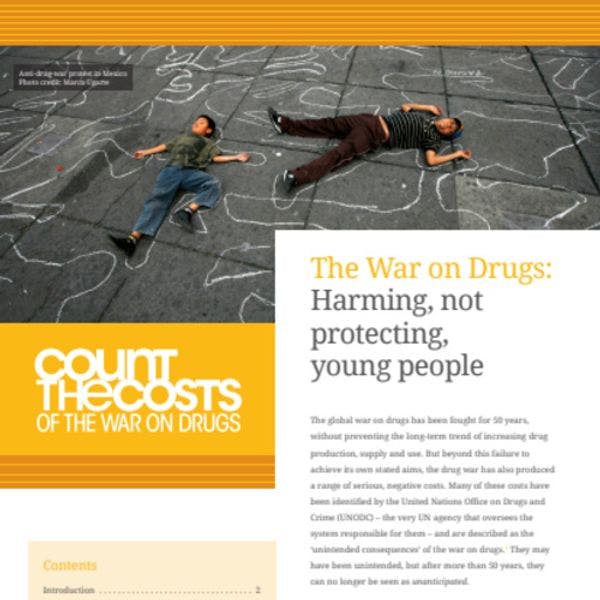The war on drugs - harming not protecting young people
The war on drugs has long been justified on the grounds that it protects children and young people. Its supporters claim that people who use and supply drugs must be arrested, criminalised, and in some cases even imprisoned or executed, in order to keep drugs off our streets and society’s youth safe. But this approach has been tried for more than half a century now – and the evidence is clear. Any marginal benefits that the approach may bring are dramatically outweighed by the costs it generates: the drug war, far from protecting young people, is actively putting them in danger.
The current punitive approach has not only failed in its core mission to stop young people taking drugs; it has dramatically increased the risks for those who do take them and, as recognised by the UNODC, has produced additional harms that are both disastrous and entirely avoidable. Yet this reality is rarely recognised in the public debate on drugs. Harms that are a direct result of the drug war – such as children and young people injured or killed in drug-market violence, the stigma and limited life chances that stem from a criminal conviction for drug possession, or deaths from contaminated street drugs – are confused or deliberately conflated with the harms of drug use per se. Too often, such harms are then used to justify the continuation, or intensification, of the very policies that created them in the first place.
This briefing from the Count the Costs initiative highlights the specific costs of the drug war for children and young people. It demonstrates how this war, while declared in the name of protecting young people from the ‘drug threat’, has ironically exposed them to far greater harm.
Keep up-to-date with drug policy developments by subscribing to the IDPC Monthly Alert.
Downloads
Topics
Regions
Related Profiles
- Count the Costs
